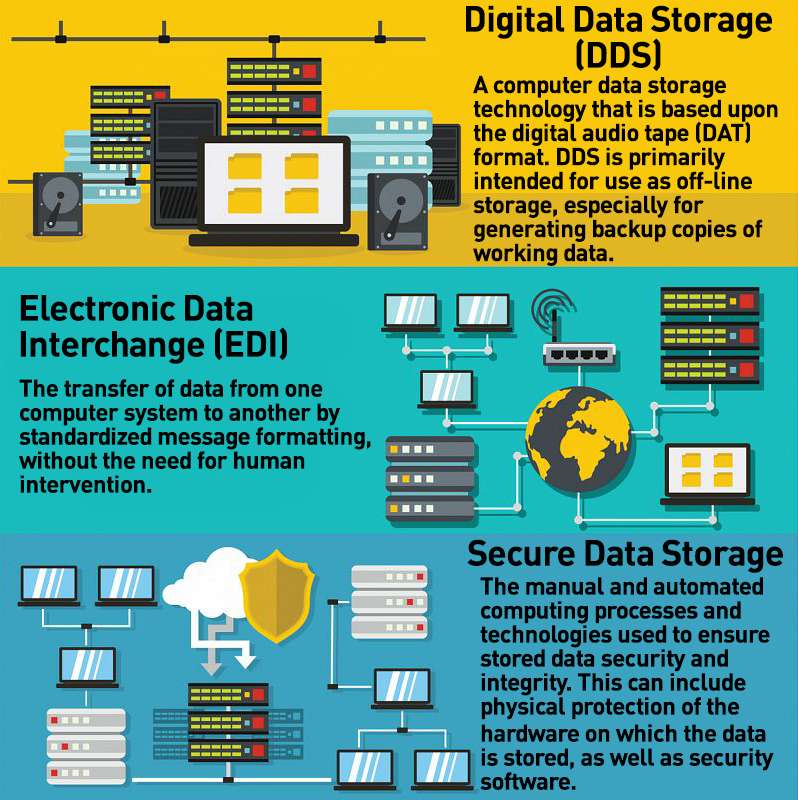Why Data Destruction is an Important Element of Comprehensive Cyber Security
Why Data Destruction is an Important Element of Comprehensive Cyber Security
Blog Article
The Vital Nature of Data Damage in Upholding Computer Safety And Security Providers and Protecting Versus Unauthorized Accessibility
In a period where data violations and identity burglary are significantly prevalent, the importance of effective data devastation can not be overstated. Organizations needs to recognize that the failing to appropriately throw away delicate information presents not only lawful and monetary risks but likewise a prospective disintegration of customer count on. Various methods, from information cleaning to physical devastation, function as crucial safeguards versus unauthorized access. However, recognizing the effects of information destruction methods and conformity with policies elevates necessary inquiries regarding the adequacy of present methods and their lasting viability despite advancing dangers.
Importance of Information Destruction
In an increasingly electronic world, the relevance of data destruction can not be overstated. As companies generate large amounts of delicate details, the potential repercussions of failing to appropriately get rid of and manage of that data become significantly extreme. Data breaches, identification burglary, and corporate reconnaissance position considerable risks, emphasizing the requirement of effective data destruction techniques.

Additionally, as modern technology develops, so too do the approaches whereby harmful stars seek to make use of sensitive info. Organizations needs to stay cautious and proactive in their information devastation methods to protect versus these developing threats. By focusing on data devastation, companies not only safeguard their possessions however also foster trust fund among customers and stakeholders, showing a commitment to liable data administration and safety methods.
Techniques of Effective Information Devastation
To ensure the irreparable and full devastation of delicate data, organizations can utilize a selection of effective techniques customized to their certain needs. One of the most common methods is data wiping, which entails utilizing specialized software program to overwrite existing data numerous times, making recuperation virtually impossible. This is specifically useful for disk drives and solid-state drives, where conventional deletion techniques are poor.
One more effective method is degaussing, which utilizes strong magnetic areas to interfere with the magnetic domains on storage space media, rendering the data irretrievable. This technique is particularly matched for magnetic storage devices, such as tape drives and hard disks.
Physical devastation is also a feasible option, involving the shredding, crushing, or incineration of storage devices. This method warranties that information can not be recuperated, making it perfect for organizations handling very delicate information.

Compliance With Data Defense Regulations
Organizations have to not just concentrate on efficient information destruction techniques however also guarantee compliance with data defense guidelines that govern exactly how delicate information is handled and disposed of. Following these regulations is important for keeping and guarding individual data customer trust fund. Rules such as the General Data Protection Policy (GDPR) in the European Union and the Medical Insurance Transportability and Accountability Act (HIPAA) in the United States impose rigorous guidelines on information administration, that include demands for the secure disposal of sensitive details.
To achieve conformity, organizations should implement detailed information devastation policies that align with these lawful structures. site link This consists of recognizing data that calls for damage, developing procedures for protected methodsâEUR" such as shredding physical media or using software application that fulfills sector standards for data wipingâEUR" and maintaining in-depth records of devastation activities. Regular audits should be performed to ensure adherence to these policies and to identify any kind of potential locations for improvement.
Failure to conform with information protection policies can bring about considerable lawful implications, consisting of substantial fines and damage to an organization's reputation. As a result, incorporating conformity right into data devastation methods is not only a legal responsibility yet likewise a critical component of a durable info safety and security approach.
Repercussions of Poor Data Handling
Poor data handling can lead to extreme repercussions that prolong past immediate operational setbacks. Organizations may deal with significant economic losses because of information breaches, which often result in costly removal efforts, legal costs, and regulative penalties. These financial ramifications can hinder and strain resources development, inevitably impacting a company's bottom line.
Moreover, poor information handling can seriously harm an organization's online reputation. Partners, clients, and stakeholders may shed depend on in an entity that fails to protect sensitive info, resulting in lowered consumer commitment and possible loss of business possibilities. This disintegration of trust fund can take years to rebuild, if it can be recovered in any way.
In addition, companies can encounter lawful ramifications occurring from non-compliance with information security guidelines. Such violations might cause penalties and examinations, worsening the financial concern and additional staining the organization's photo.
In the world of cybersecurity, insufficient data administration methods can develop vulnerabilities that make systems more vulnerable to unapproved access and cyberattacks. Eventually, these repercussions emphasize the important value of executing durable data dealing with treatments to secure sensitive information and preserve business honesty.
Finest Practices for Secure Information Disposal


To start with, information ought to be identified according to its sensitivity. Delicate information requires extra strenuous disposal methods, such as shredding physical files and making use of advanced software application for electronic information cleaning. Using licensed data devastation services ensures compliance with industry policies and requirements.
Second of all, organizations ought to execute an information disposal plan that Resources mandates normal audits. This plan needs to detail the treatments for data retention and devastation, ensuring that out-of-date data is gotten rid of immediately and safely. Educating employees on these protocols is vital to promoting a society of protection understanding.
Last but not least, preserving detailed records of disposed information enhances liability and provides a clear audit trail. This paperwork ought to include the kind of information destroyed, the technique made use of, and the date of disposal.
Verdict
Adopting durable techniques such as information cleaning, degaussing, and physical destruction, alongside conformity with regulations like GDPR and HIPAA, is essential for guarding delicate information. Ignoring correct data disposal methods can lead to severe effects, including information breaches and legal consequences.
In a period where data breaches and identification theft are increasingly widespread, the relevance of efficient data devastation can not be overstated. data destruction. Information violations, identity burglary, and business espionage position significant hazards, underscoring the necessity of reliable information destruction techniques
Conformity with regulations such as GDPR and HIPAA requireds that companies implement strict information defense actions, including the secure damage of data at the end of its lifecycle.
By prioritizing information devastation, business not only shield their assets however additionally foster depend on amongst stakeholders and customers, showing a commitment to accountable data administration and security techniques.
Organizations need to not just concentrate on reliable visit this web-site information devastation techniques but likewise ensure conformity with information security laws that control just how sensitive information is taken care of and disposed of.
Report this page